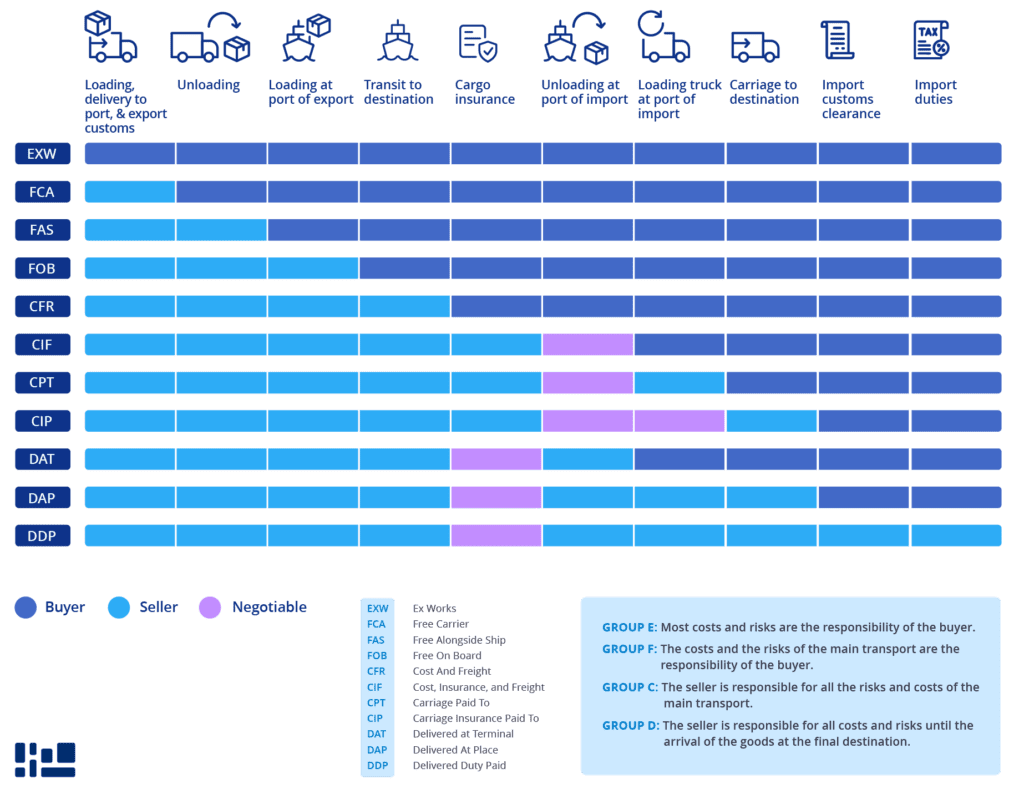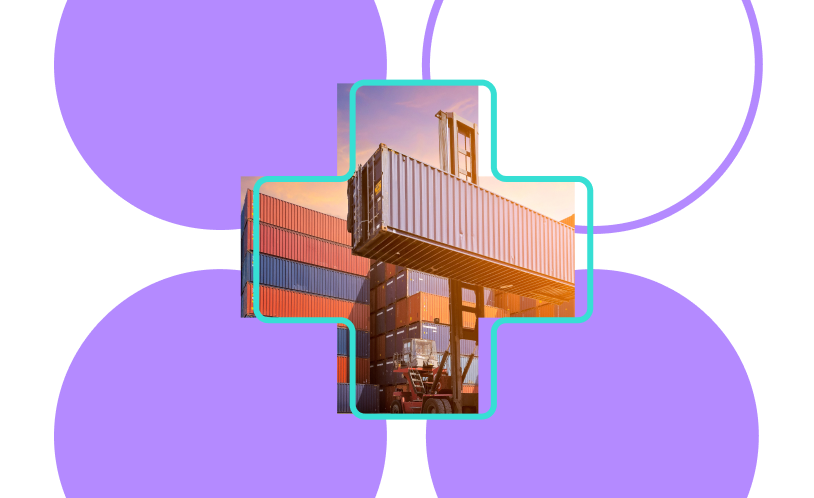Part of the Comprehensive Incoterms Guide
CPT (Carriage Paid To) can prove to be a demanding incoterm. Its utilization is advisable when a Letter of Credit is involved, as it can help streamline and safeguard the shipping and payment processes. Continue reading for everything you need to know about CPT Shipping Incoterm.
What is Carriage Paid To (CPT)?
CPT (Carriage Paid To) is an international trade term used in the context of selling goods. It represents an agreement between the seller and the buyer regarding the responsibility and costs associated with the transportation of goods.
In a CPT arrangement, the seller has the obligation to arrange and pay for the carriage of the goods to a named destination, which is typically specified in the sales contract. This means that the seller is responsible for selecting the means of transport, booking transportation services, and ensuring that the goods are transported to the agreed-upon destination. The seller is also responsible for covering the associated transportation costs, which may include freight charges, handling, and loading fees.
However, once the goods have been delivered to the named destination, the responsibility for the goods shifts from the seller to the buyer. This includes the risk of loss or damage to the goods. It is essential for the buyer to be ready to take possession of the goods and handle all further costs, such as unloading, customs duties, taxes, and inland transportation from the arrival point to the final destination.
In essence, CPT terms define the seller’s commitment to deliver the goods to a specified location, while the buyer assumes responsibility for the goods and associated costs once they arrive at the designated destination. It is crucial for both parties to clearly understand their obligations and the specific details outlined in the sales contract when using CPT terms in international trade transactions.
Where Is The Named Place For Handing Over Responsibility From The Seller To The Buyer?
The seller is responsible and liable for all the steps in their country, or as far as the buyer’s forwarder’s warehouse. The seller is also responsible for booking main carriage to a terminal in the buyer’s country, or even further to the buyer’s warehouse. Either way, the seller is not liable after the goods arrive at the terminal or warehouse in their own country.

What Does The ICC Say?
The International Chamber of Commerce (ICC) provides valuable guidelines when it comes to incoterms, and in the case of CPT (Carriage Paid To), it is often recommended for containerized freight. This designation underscores the suitability of CPT for scenarios where goods are transported in standard shipping containers, offering some degree of convenience and predictability in the logistics process.
Is This A Good Choice?
Importers who don’t have a representative at the port should be wary of using this term unless they are sure that the carrier’s rates include terminal handling charges. If not, your seller’s forwarder will use a 3rd party agent to manage import clearance, duties, and terminal charges. Many importers get caught with inflated charges and dubious fees that they are effectively unable to challenge.
CPT Tips And Tricks
- By contrast, this incoterm is often an excellent choice for larger importers, if they have an agent responsible for goods (clearing and delivery) once they reach the terminal at the import country.
- If there is more than one carriage in the export country, e.g. via a forwarder’s warehouse for consolidation, the seller is not liable or responsible for the middle man (second carriage), unless that is made clear in the sales contract.
- Risk (liability) and responsibility (for tasks and payment) are handed over at different points for C terms. Risk is transferred in the export country when the carrier receives the shipment (at the named place of delivery), even though the buyer has booked and paid for the main carriage.
- When the incoterm is mentioned in a contract of sale, the named place immediately follows, e.g. EXW (address of seller’s factory). For those incoterms where risk and responsibility are split, use the named place of destination (responsibility). Be sure to specify the named place of delivery (liability) elsewhere in the sales contract.
- The buyer should arrange insurance cover from where liability is transferred (the named place of delivery), i.e. the terminal in the export country.
One of the four C terms should be selected when the sales contract includes a letter of credit.
CPT Cost Calculator
You can use our freight rate calculator to help you decide how different incoterms will impact your freight cost. For example, when shipping EXW, you’ll be responsible for the added cost of getting your goods from your supplier to the seaport or airport. Simply choose container, box, or pallet shipping, enter your dimensions and weight, and you’ll get an instant estimate of freight shipping costs.



